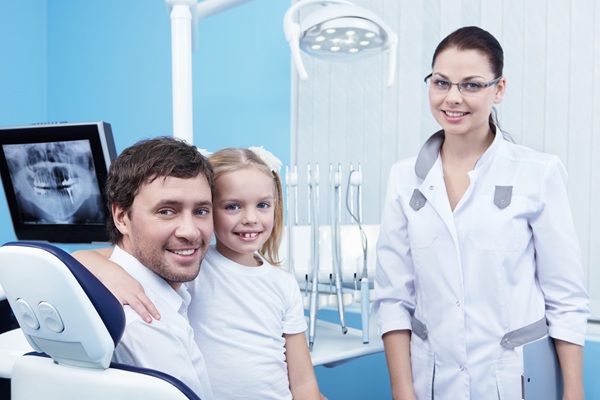Oral Hygiene Tips From a Pediatric Dentist for Your Baby’s First Teeth

Infants can benefit from seeing a pediatric dentist when primary teeth begin to erupt. Primary teeth are placeholders for permanent teeth and should receive the same attention, including appropriate home care.
Why caring for primary teeth matters
Primary teeth are crucial to a baby's health and development. Therefore, dentists encourage parents to begin an infant's oral hygiene routine as soon as possible to:
- Promote jaw development
- Facilitate chewing
- Facilitate speaking
- Prevent decay
- Promote gum health
A healthy mouth can help a child reach critical milestones and avoid unnecessary discomfort.
Tips for how to care for primary teeth
Parents who begin an oral care regimen during a child's infancy inspire a lifetime of good habits. Consulting with a pediatric dentist for oral hygiene tips suitable for babies can help parents apply the most effective techniques.
Start with the gums
An oral hygiene routine can begin before a baby's first teeth erupt because the mouth can harbor bacteria that can compromise new teeth. Still, parents can minimize the risk for potential damage by cleaning the gums using a soft, damp cloth or a toothbrush designed for infants.
Introduce a small, soft-bristled brush
Brushing can begin when a baby's teeth start to come through the gums. Parents can brush small teeth using water or a tiny bit of child-friendly toothpaste about the size of a rice grain. Although parents can wipe away excess toothpaste that a baby cannot spit out, no harm will come from swallowing such a small amount. In any case, maintaining a playful, stress-free attitude will making brushing less intimidating for infants.
Prevent tooth decay
Tooth decay can happen at any age, and it is common among babies who frequently drink sugary beverages, including fruit juices, from bottles. Pediatric dentists recommend that infants not drink sweet drinks before falling asleep when reduced saliva flow can cause sugars to settle on teeth and promote decay. In addition, a bottle or pacifier in a sleeping infant's mouth can promote bacteria on the gums and teeth.
Feed healthy foods
Dentists recommend that parents introduce healthy eating habits when infants can take solid foods at around six months old. For example, avoiding starches, sweets, and sticky foods that cling to the teeth can minimize decay and help children develop a lifelong taste for healthy choices.
Avoid sharing spoons
Infants' mouths do not have as much exposure to bacteria-promoting foods and other substances as adults' mouths. Dentists advise parents to avoid sharing spoons with infants at mealtimes to prevent exposing baby teeth to decay-promoting bacteria.
Schedule an appointment with a pediatric dentist
An infant's first dental appointment can occur within six months of the first tooth's appearance. At this time, a dentist may perform a gentle cleaning, check jaw structure, gums, and bite, and educate parents about the importance of caring for primary teeth and fluoride.
Conclusion
It is never too soon to begin promoting oral hygiene. Parents unfamiliar with caring for infants' primary teeth can consult with a pediatric dentist for helpful oral hygiene tips.
Request an appointment here: https://tinyteethpediatricdentistry.com or call Tiny Teeth Pediatric Dentistry at (516) 243-1364 for an appointment in our Mineola office.
Check out what others are saying about our dental services on Yelp: Pediatric Dentist in Mineola, NY.
Related Posts
Once teething starts, you should pay close attention to your child's teeth to avoid tooth decay, cavities, and other oral health problems. A dentist specializing in pediatric dentistry might advise against pacifiers and other items that might interfere with the healthy development of their oral tissues. Sucking on a pacifier is common among infants and…
Pediatric dentistry treatments can stop and prevent tooth decay. This dental problem can influence a child’s emotional, physical, and mental well-being. Poor oral health results in more than tooth decay. This situation could lead to harmful diseases and other conditions. If you want to know tooth decay’s effects on children, here are the details from…
When does my child need pediatric dentistry? This is a question that many parents often ask. The answer may vary depending on the opinion of the pediatric dentist. However, most pediatric dentists believe that a child should go to pediatric dentistry by their first birthday.A child needs to get used to the dentist at an…
Pediatric dentistry focuses on the oral problems that occur in children. Many dental issues in kids are similar to those that occur in adults. Without proper treatment, dental problems can progress to misaligned teeth and poor oral health. If you want to maintain your child’s dental health, here are the common dental issues that pediatric…
